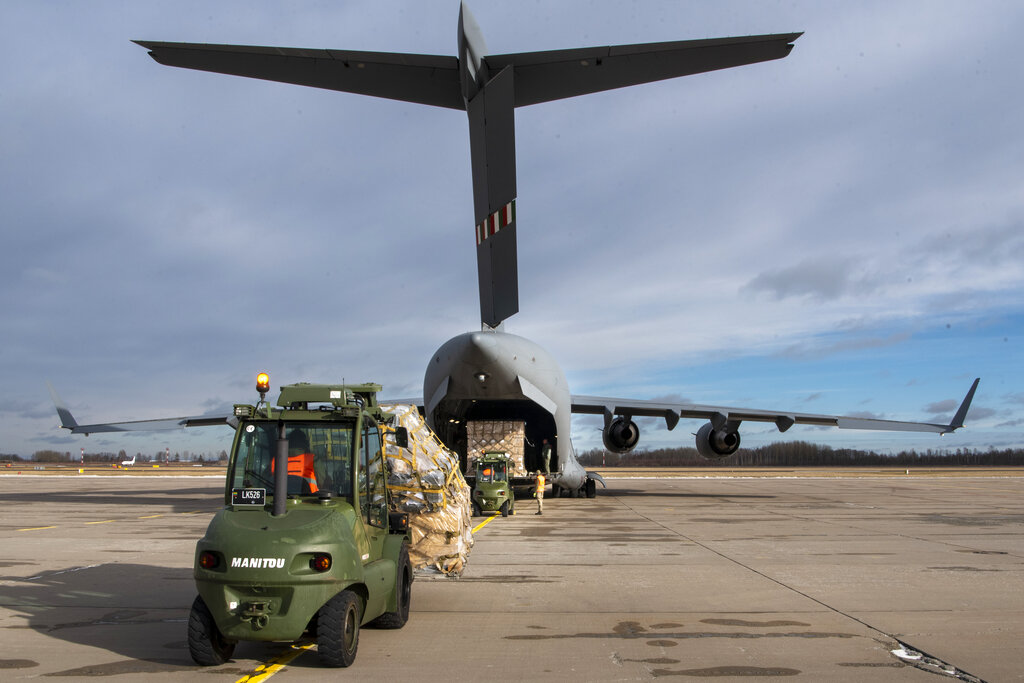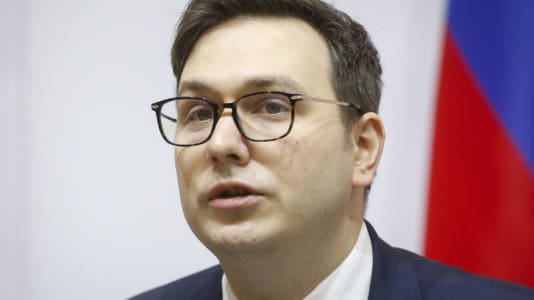The first German contingent of reinforcements arrived at the military base near the Lithuanian town of Rukla on Thursday.
With a German convoy of 60 vehicles, 130 soldiers arrived in the Baltic state. A column of artillery and reconnaissance units departed from the Jägerbrück barracks in eastern Germany on Tuesday and reached Lithuania via Poland. In the next few days, a second convoy will set off with mortars and heavy transport vehicles to Rukla.
The German defense ministry announced on Feb. 7 that it would send an additional 350 troops to Lithuania as part of NATO troop reinforcements amid the crisis in Ukraine.
About half of the 1,200 German-led NATO force in Lithuania consist of troops from the German army (Bundeswehr). The NATO battle group was deployed to Lithuania in 2017 following the Russian annexation of Crimea a few years prior. Lieutenant Colonel Daniel Andrae, commander of the contingent stationed in Lithuania, said the military reinforcement will be completed by the end of the week.
“We have shown that we are able to bring troops from a great distance in a short time,” Andrae told Reuters. He added that with the expected reinforcement, the fleet will be expanded by more than 350 soldiers and 100 vehicles. Lithuanian Defense Minister Arvydas Anusauskas said on Thursday that Norway wanted to strengthen its contingent stationed in Rukla by 50 to 60 troops over the next three months, which would increase the NATO battle group on the ground in the country to 1,610.
“The presence of Allied forces in Lithuania is a key deterrent,” said Margiris Abukevicius, Lithuania’s deputy defense minister. Britain, which is leading a similar battle group in neighboring Estonia, has previously indicated it will double its forces.
U.S. President Joe Biden said on Thursday that “there are still all signs” that Russia is planning an attack on Ukraine. He added that Moscow may want to use the so-called false-flag operation to create an excuse for the invasion, especially since Ukrainian government forces and pro-Russian separatists in eastern Ukraine have fired at each other.
Romania gets air force boost
Three German air force fighters arrived on patrol in Romania on Thursday at the Mikhail Kogalniceanu military base on the Black Sea coast, the Romanian defense ministry has confirmed. Eurofighter Typhoon fighters and the approximately 60 soldiers serving with them, together with fighters and soldiers from the Romanian and Italian Air Forces, will carry out reinforced patrols in NATO’s eastern wing airspace over the next three weeks under NATO command.
This is not the first time the German Air Force’s fighters have been involved in a mission to Romania; last year they practiced with the British Air Force’s Typhoons at the Mikhail Kogalniceanu base. The Joint Airspace Patrol Service will serve to increase the response and deterrence capacity and to strengthen cooperation between the Romanian and Allied Air Forces, according to a statement issued by the Bucharest Ministry of Defense.
Last week, eight U.S. Army F-16 fighters and the 2nd U.S. Armored Cavalry Regiment, a Stryker combat battalion of 1,000 soldiers equipped with combat vehicles, were also commanded from Romania to Germany. During this period, four F/A-18 Super Hornet fighter jets and 50 soldiers of the U.S. Navy remain practicing at the Borcea air base in southern Romania. Romania continues to push for the strengthening of NATO’s eastern wing in the Black Sea region, citing the Ukrainian crisis and the Russian threat.
In addition to the current temporary troop reinforcement, NATO has also announced the deployment of a permanent battle group in Romania. An international battle group to be set up under French command is expected to arrive in Romania in March, and its composition will be discussed this week in Brussels by the defense ministers of NATO members.





